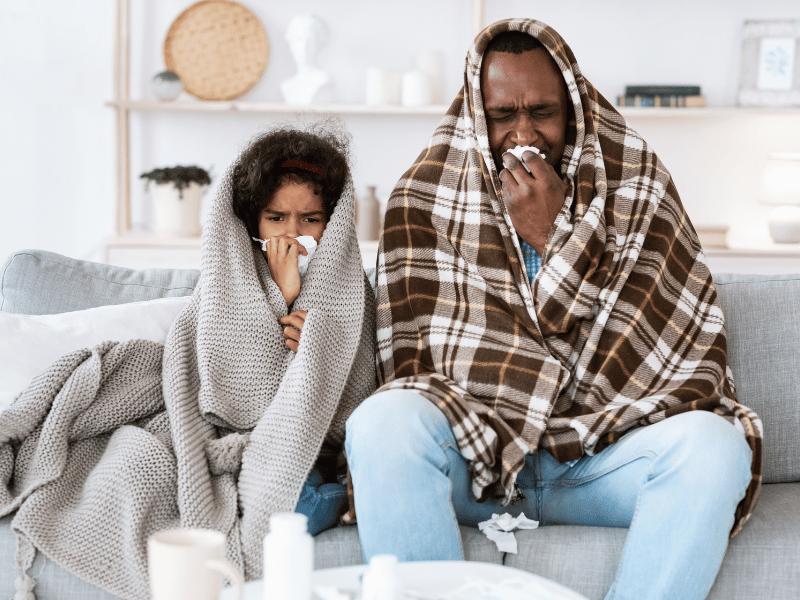Respiratory illnesses on the rise this winter

Handwashing, covering coughs and sneezes and staying home when sick are essential this winter in Mississippi.
The state’s among those listed by the U.S. Centers for Disease Control and Prevention as having “very high” rates of influenza-like illness for the week ending Jan. 5, 2024.
Nationally, the CDC reports that hospitalizations for COVID-19 have increased since late December, with more than 20,000 hospitalized nationwide. The CDC estimates that there have been at least 10 million illnesses, 110,000 hospitalizations, and more than 6,500 deaths from flu so far this season.
Two of those deaths were Mississippians younger than 18, the Mississippi Department of Health reported last week. Nationwide, a total of 40 pediatric flu deaths have been reported to the CDC.

“This time of year, respiratory illnesses are an elevated risk,” said Dr. Bhagyashri Navalkele, medical director for infection prevention at the University of Mississippi Medical Center. “Holiday gatherings and spending more time indoors in the winter can make it easier for respiratory illnesses like influenza, COVID-19 and RSV to spread. Lower immunization rates for flu and COVID are a cause for higher susceptibility to severe respiratory illnesses."
Navalkele said the rates of influenza hospitalization at UMMC are higher post-holidays than in the month prior.
RSV, or respiratory syncytial virus, is a common virus that usually causes mild, cold-like symptoms. Most people recover in a week or two, but RSV can be serious for babies and older adults. The virus leads to about 80,000 hospitalizations with as many as 300 deaths among children younger than 5 each year, CDC statistics show.
Covering mouths and noses when coughing and sneezing is important to avoiding RSV and influenza this winter since the viruses are spread through droplets. They can also be contracted by touching surfaces with the virus on them and then touching your face before washing your hands.
Vaccinations can help reduce the risk of serious illness from influenza, COVID-19 and RSV.
“We highly encourage people to get a flu shot,” said Interim State Epidemiologist Dr. Kathryn Taylor. “A vaccination won’t necessarily keep you from getting the flu, although it can reduce your risk of infection and is the best protection to keep you from a severe outcome. With a few months left in this season, we recommend everyone six months of age and older consider a flu and COVID-19 vaccination.”
In the fall, the CDC’s Advisory Committee on Immunization Practices recommended that all adults receive influenza and COVID-19 vaccinations and those 60 and older also receive the RSV vaccine.
Children 6 months and older can be vaccinated against influenza and COVID.
Infants 8 months and older who are at risk from severe RSV complications can be vaccinated against RSV with the newly available Nirsevimab, or Beyfortus. Most infants younger than 8 months of age do not need Nirsevimab if they were born 14 or more days after their mother got RSV vaccine. Nirsevimab has been shown in studies to reduce the risk of severe RSV disease by 80%.
Another way to prevent the spread of viruses this season is staying home when sick. Those with positive COVID test results are usually contagious for the next 10 days. The CDC recommends staying home and isolating from others for the first five days and wearing a mask for the following five days when around others.
The contagious period for RSV, flu and other respiratory viral infections is similar. Spread can occur as early as a day before symptoms are noticeable and continue for up to seven days after the onset of symptoms.
“These viruses, COVID, RSV and influenza, can cause serious illnesses and lead to hospitalization,” Navalkele said, “so taking precautions to prevent their spread saves lives.”


